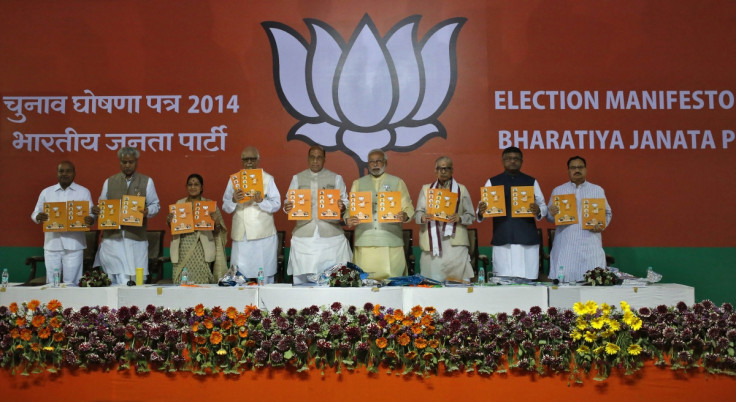India Elections 2014: Focus on Muzaffarnagar, Scene of Hindu-Muslim Riots that Killed Dozens

As millions of Indians cast their votes in the third phase of the biggest electoral process in world history, the focus was on Muzaffarnagar constituency in northern Uttar Pradesh state, which includes villages that saw bloody Hindu-Muslim riots that killed 65 people late last year.
Voting was slow in Muzaffarnagar, where policemen had to accompany Muslim riot victims from their temporary shelters to the polling stations. Minor clashes were reported in some villages despite the heavy security clampdown put in place for the elections.
For the BJP, polling in Uttar Pradesh is of great significance. Nowhere in the country is the communal divide more evident than in the most populous state of India. The party hopes to wrest power in New Delhi by projecting its talismanic leader and prime ministerial hopeful, Narendra Modi, who champions an aggressive version of pro-Hindu agenda.
Last year's religious riot has galvanised the party's cadres in this large state, which accounts for 80 of the total 543 seats in the lower house of parliament. A clear win in Uttar Pradesh which, if it were a separate country, would be the fifth largest in the world, is key to Modi's hopes of conquering the Red Fort in the capital New Delhi.
Riots and Hindu Victimhood
Many Hindus in Uttar Pradesh blame the Muslims for starting the communal clash, and a vast majority of them are aligning themselves behind Modi and the BJP at the expense of the ruling Congress party, which boasts of its non-communal credentials.
This large-scale polarisation was aided by the popular perception that the Congress, as well as the Samajwadi Party, which heads the state government, were wooing Muslims votes.
With the opposition vying with each other for minority Muslim support, Modi's task was less onerous. Modi, whose campaign is marked by brash, direct and sometimes incendiary attacks on the opposition, stepped up his dogged pursuit of Hindutva goals.
The BJP's election manifesto stuck to the party's basic tenets, declaring its intent to enforce a uniform civil code in the country, scrap the special constitutional status to Jammu and Kashmir state and build a Ram temple at the disputed site in Ayodhya where an ancient mosque was pulled down by Hindus in 1992.
All these promises cater to the far right of the Hindutva vote bank, whose sense of victimhood in the Hindu majority country was heightened by last year's riots.
Hindu organisations had accused the state police of favouritism while dealing with a murder case that later snowballed into a communal clash. In one of the worst religious riots in the country, dozens of people from both religions died while about 50,000 people, mostly Muslims, were displaced.
Call for Revenge
Amith Shah, Modi's henchman and a vocal supporter of anti-Muslim propaganda, toured Uttar Pradesh, whipping up a communal frenzy. He accused the Muslims of raping and killing Hindus and said it was "an election for honour. It is an election to take revenge for the insult".
Though Shah was reprimanded by the Election Commission and criticised across the country, it is clear that a "Modi wave" was sweeping through the state.
Modi, and the BJP, calculate that a huge success in Uttar Pradesh will make their task of piling up 272 seats in Lok Sabha, or lower house of parliament, easier.
According to opinion polls, the BJP is expected to win more than 50 of the 80 seats in the state.
The mood in Muzaffarnagar and other regions of the state appears to be clearly in favour of the BJP.
A local chieftain, who had admitted to helping Hindu mobs attack Muslims, told Reuters that people of the state are attracted towards the BJP because of the riots.
"With Modi taking office, Muslims will automatically feel the pressure. They will not dare to raise their voice."
© Copyright IBTimes 2025. All rights reserved.






















